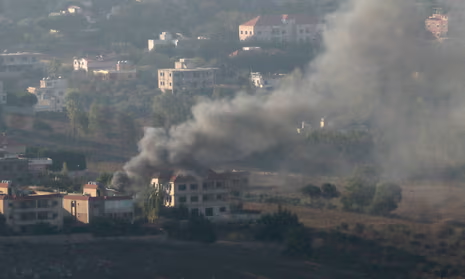Israeli attack on Lebanon
Israel conducted a large airstrike against Hezbollah in southern Lebanon during the night of Saturday and Sunday. The attack was explained as a preventative measure to avert an impending attack by the organization backed by Iran. The so-called ceasefire discussions for Gaza are currently in the shambles, and the escalation took place amid already elevated tensions in the region.
The Israeli army reported that the operation's goal was to destroy rocket launcher locations in southern Lebanon, so averting a planned strike by Hezbollah against Israel.
Israel's weaponry was on display as almost a hundred jets hit hundreds of targets throughout the course of the night. According to Army spokesperson Daniel Hagari, these steps stopped Hezbollah from launching a more severe strike.
In response to Israeli assaults, Hezbollah moved swiftly, launching over 300 rockets and drones targeting 11 northern Israeli military locations.
These figures, if verified, would rank the attack among the biggest in recent memory. The fact that the Israeli army only sustained minimal casualties in spite of the fierce attack highlights Hezbollah's primary goal of striking central Israel, which might have resulted in far more catastrophic damage if it hadn't been stopped.
The Israeli strike was deemed as one of the deadliest since October 7 by the National News Agency, the official news agency of Lebanon. It resulted in at least two casualties, one of which was critical, and substantial damage to infrastructure, including the power grid and hydraulics.
Israeli Defense Minister Yoav Gallant responded to the incident by proclamating a 48-hour state of emergency. Israeli Prime Minister Benjamin Netanyahu announced the government was keeping an eye on the situation from the Tel Aviv military base and summoned an emergency meeting.
Flights to and from Ben Gurion Airport in Tel Aviv were temporarily halted as a precaution before beginning as usual.
One of the most crucial times in the area in months is represented by the recent escalation between Israel and Hezbollah. The Middle East scenario is still extremely dangerous and frightening, with both parties demonstrating a growing degree of resolve and the discussions leading up to the Gaza truce being threatened. There is an increasing likelihood of major conflicts.
